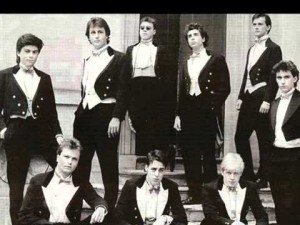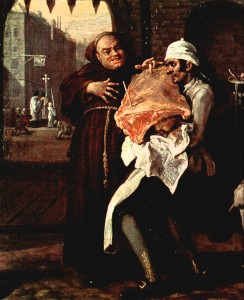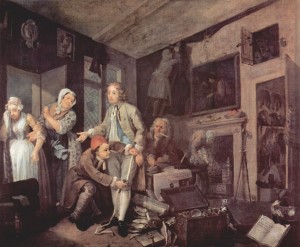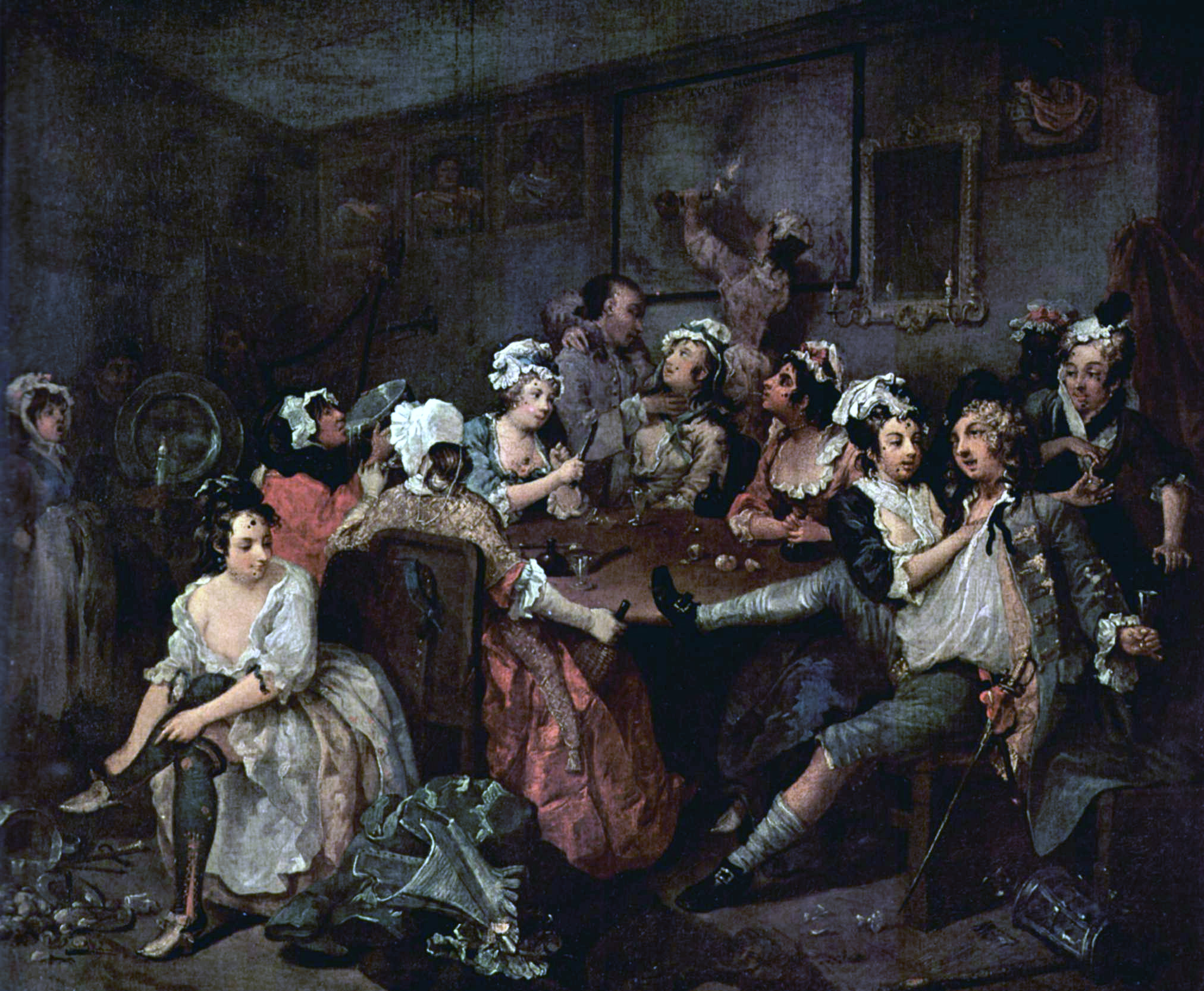The #piggate controversy is both distasteful and disturbing and matters more than the humorists want to admit. But it reminds us that we cannot explain human experience if we do not acknowledge that moral facts are as real as gravity; and we ignore those moral facts at our peril.
 Twitter and the tabloid press competed for attention when the Daily Mail’s serialisation of Call Me Dave caught the British public’s imagination. Lord Ashcroft’s biography of the Prime Minister has been described as a carefully calculated act of political revenge (he believes that Mr Cameron did not fulfil an implicit promise of an important role in his cabinet). The book acknowledges the Prime Minister’s efficient, studious mind and his laudable work ethic; but it also seeks to portray him as careerist who lacks a substantial moral vision. However, it has already achieved international notoriety through dreadful, sordid gossip about the Prime Minister’s student years. Above all, the absurd claim that David Cameron performed a lewd act with a pig’s head set Twitter on fire.
Twitter and the tabloid press competed for attention when the Daily Mail’s serialisation of Call Me Dave caught the British public’s imagination. Lord Ashcroft’s biography of the Prime Minister has been described as a carefully calculated act of political revenge (he believes that Mr Cameron did not fulfil an implicit promise of an important role in his cabinet). The book acknowledges the Prime Minister’s efficient, studious mind and his laudable work ethic; but it also seeks to portray him as careerist who lacks a substantial moral vision. However, it has already achieved international notoriety through dreadful, sordid gossip about the Prime Minister’s student years. Above all, the absurd claim that David Cameron performed a lewd act with a pig’s head set Twitter on fire.
Ingenious puns, memes and parodies abounded; but while the result amused hacks and tweeters I doubt Mr Cameron’s children seen the funny side. Insofar as the “quality” press has addressed #piggate it has asked how we ought to react. Once prurient humour has been set aside, we recognise that something has gone wrong with our political culture. So, oddly, piggate reminds us that morality is real and matters. These are not issues for pragmatists; we are not concerned about quantitative easing or the dangers of inflation. We want to know what the moral facts are; what has gone right and wrong in our political culture. And it is impossible to deny that we are in a very rotten state.
Lord Ashcroft’s book might be condemned as a cruel, cynical and amoral act of personal and political revenge (a charge he would vociferously reject). The pig tale was founded on a single source who could produce no corroborating evidence. Technically, the source remains anonymous. However, we have been told by Lord Ashcroft that it was told by a Conservative MP who attended Oxford at the same time as Mr Cameron. If Mr Cameron cross references this with “political enemies” he might well guess who humiliated him – and yet be able to say little about it.
 This bizarre, malicious invective was embedded in other, more plausible allegations: that Mr Cameron has used illegals drugs, attended licentious parties, lied to the public as Prime Minister and implicitly promised a cabinet position in exchange for substantial financial support. The Prime Minister’s PR machine was placed in a quandary. The tale of the pig’s head needed to be cut down with an explicit denial. But it would not do to call “piggate” a damnable lie without replying to all the other accusations. The Prime Minister could formally condemn every story or none. If he could not recall exactly what occurred at every party he attended at university then he was effectively left with little to say. He was outmanoeuvred and personally humiliated before the world.
This bizarre, malicious invective was embedded in other, more plausible allegations: that Mr Cameron has used illegals drugs, attended licentious parties, lied to the public as Prime Minister and implicitly promised a cabinet position in exchange for substantial financial support. The Prime Minister’s PR machine was placed in a quandary. The tale of the pig’s head needed to be cut down with an explicit denial. But it would not do to call “piggate” a damnable lie without replying to all the other accusations. The Prime Minister could formally condemn every story or none. If he could not recall exactly what occurred at every party he attended at university then he was effectively left with little to say. He was outmanoeuvred and personally humiliated before the world.
This is modern, democratic politics in all its shameless glory; and we wonder why so many voters are apathetic. And there are other causes for concern. The very fact that so many members of the general public could treat this story as plausible reveals that we are living in a divided nation. Or, at least, that we believe that we are living in a divided nation. We suspect that we are ruled by the very rich, the top 1% and we speculate that this oligarchy does not share our moral code. They play by different rules; wealth and privilege allow them to live without consequences. So few readers would be entirely surprised if millionaires brazenly indulged in a few perverted pastimes while at Oxbridge.
We do well to remember that “piggate” is a trifling affair compared to allegations of child abuse made against former Prime Minister Edward Heath and investigations into a ring at Westminster in the 1970s and 1980s. Perhaps the social elite, the much maligned “establishment”, has a lot to answer for. Maybe it has accumulated too much power and influence. But while the top 1% might have its share of shameless sinners, I doubt that any social class has earned the right to cast the first stone. If we are to share the same island, we do well to examine our own flaws and to be less eager to believe the worst about others.
 There is also a substantial political cost. David Cameron’s government is locked in a battle to prevent “extremism” by defending “British values”. But when politicians throw morality to the wind, and set revenge or ambition above right and wrong then their moral authority is diluted. Government depends on influencing ordinary people; the current administration may have lost a significant amount of moral authority with communities it needs to endorse its controversial “Prevent” programme. Student’s Unions, for example, have been told to vet speakers; but they might want the Prime Minister’s social circle to spend a little more time clarifying what values they embraced at university before lecturing ethnic minorities on how to be British.
There is also a substantial political cost. David Cameron’s government is locked in a battle to prevent “extremism” by defending “British values”. But when politicians throw morality to the wind, and set revenge or ambition above right and wrong then their moral authority is diluted. Government depends on influencing ordinary people; the current administration may have lost a significant amount of moral authority with communities it needs to endorse its controversial “Prevent” programme. Student’s Unions, for example, have been told to vet speakers; but they might want the Prime Minister’s social circle to spend a little more time clarifying what values they embraced at university before lecturing ethnic minorities on how to be British.
In our effort to be hard-headed realists we forget that morality is as real as gravity and electromagnetism. True, we cannot see or measure qualities like venality, cupidity, courage or kindness. But then we cannot see another’s emotions, intentions, thoughts or beliefs. Just we cannot explain the world without a belief in mental states, we cannot explain others without believing something about their moral properties. We assume there are normative standards that we all should acknowledge, presuppose that we all feel the power of those standards, yet have the capacity to resist them. Then, by knowing something about another’s attitudes to morality, we can influence and predict their actions.
 So we do not merely have the evidence of our moral experience and our deepest intuitions. We cannot even explain our own actions without acknowledging the obligations we feel when we make promises or strike up a friendship. We can compromise on matters of taste or preference; but we will not compromise with someone who takes delight in malicious torture. And we feel the weight of some decisions over others: there is a clear difference between deciding to leave one’s job and choosing to leave one’s spouse and children. Morality is inescapable; our deliberations and practices are senseless if it is merely an illusion. It is as vital as nutrition for we cannot thrive and flourish without it. The practical, sensible cynics who run our nation would do well to remember that moral facts exist and are essential for our well-being. For in the absence of moral standards humility dies, forgiveness is impossible and common goals are replaced in a brutish, selfish war for personal advantage.
So we do not merely have the evidence of our moral experience and our deepest intuitions. We cannot even explain our own actions without acknowledging the obligations we feel when we make promises or strike up a friendship. We can compromise on matters of taste or preference; but we will not compromise with someone who takes delight in malicious torture. And we feel the weight of some decisions over others: there is a clear difference between deciding to leave one’s job and choosing to leave one’s spouse and children. Morality is inescapable; our deliberations and practices are senseless if it is merely an illusion. It is as vital as nutrition for we cannot thrive and flourish without it. The practical, sensible cynics who run our nation would do well to remember that moral facts exist and are essential for our well-being. For in the absence of moral standards humility dies, forgiveness is impossible and common goals are replaced in a brutish, selfish war for personal advantage.

